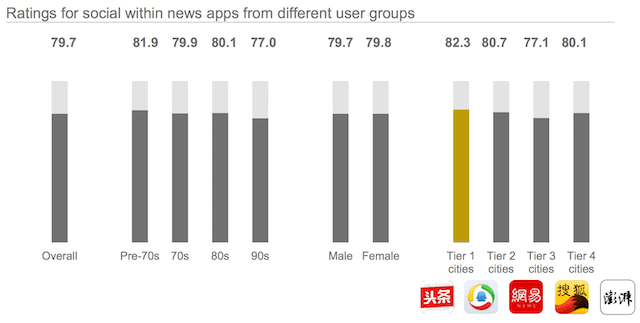
Kantar’s social media report has found that Chinese respondents are generally happy with changes brought by social media. People born in 1990s (post-90s) showed more caution against negative impacts of social media.
WeChat continues its dominance, however, its growth has largely slowed down. Weibo is making a comeback, many new and old social media platforms are managing to find value developing niche user groups.
Growth of Social Media Platforms in China
While usage penetration and daily active user base keep increasing among all WeChat users, its popularity among 18 to 25 years old had a slight decrease according to Kantar’s research.
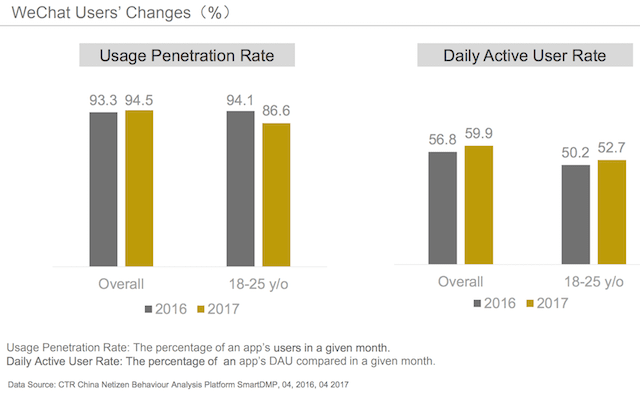
Weibo penetration rate had a significant increase, and its influence among younger generation rose.
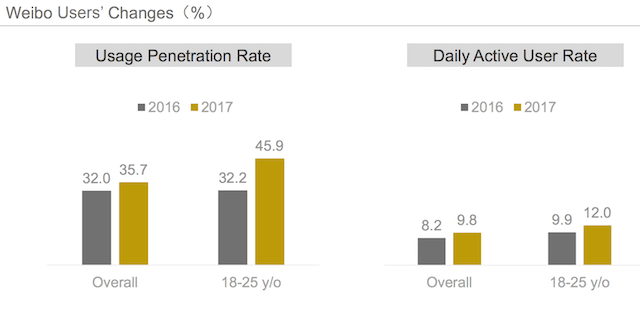
QQ penetration rate remains unchanged, but usage is increasing among younger users.
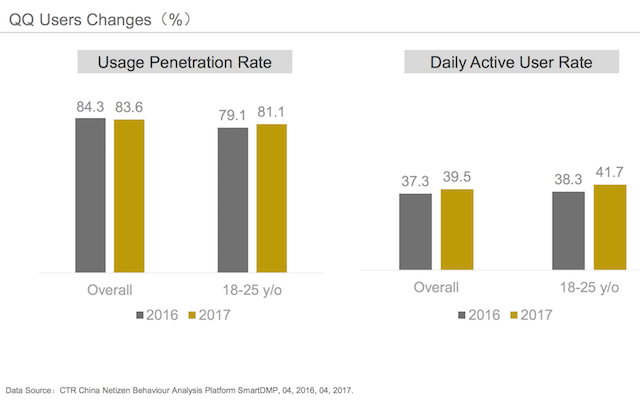
Old age groups represent the social media growth hotspots.
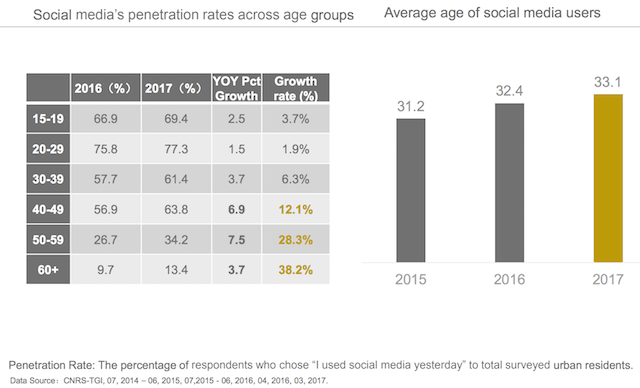
“Makeup before leaving home” has been accepted by more female social media users in China. Chinese social media users aren’t necessarily always on the go: they prefer to stay home if nothing special is going on. Inner beauty has a greater recognition among them, and they are more increasingly ready to join charitable causes.
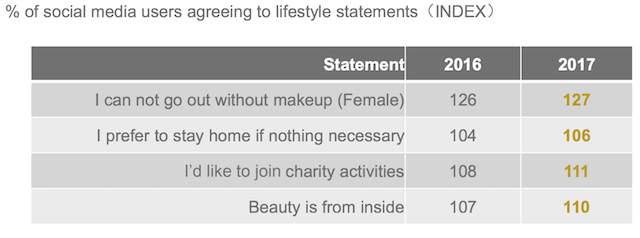
Social Media is Everywhere
Social media not only refers to applications like WeChat, Weibo, QQ and Momo, but also includes thsoe with social functions in video, news, e-commerce, etc.
Mango TV, the video app launched by Hunan Satellite TV Station, is expanding quickly among the young users.
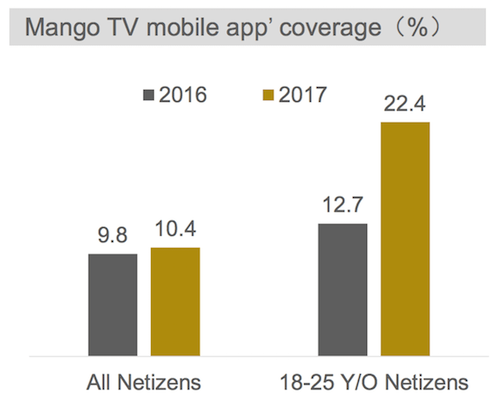
Mobile news app Toutiao grows rapidly
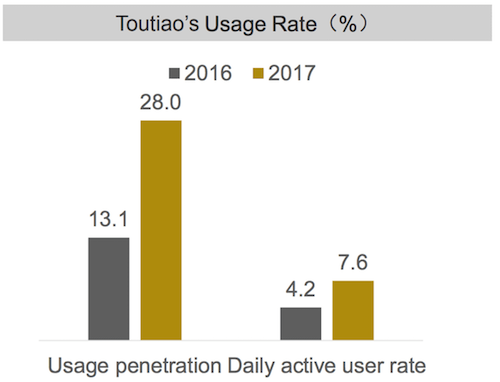
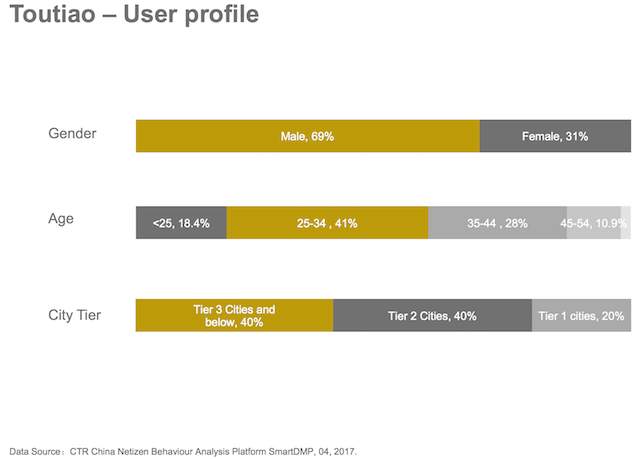
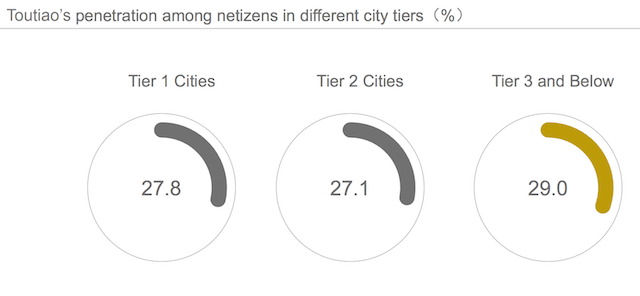
The most recognized positive feature of social media is to help people keep track of friends and family members, followed by following trending topics and learning new knowledge.
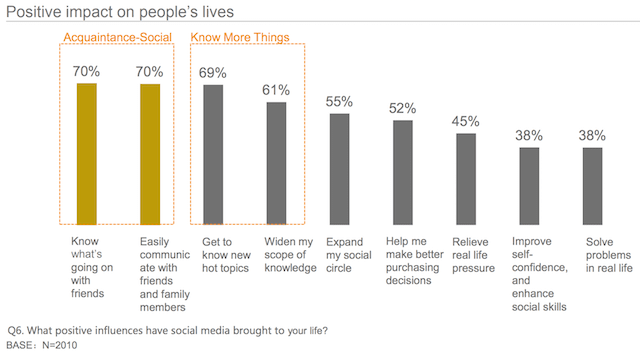
Female users feel social media is helpful in making purchasing decisions, relieving pressure and enhancing self-confidence.
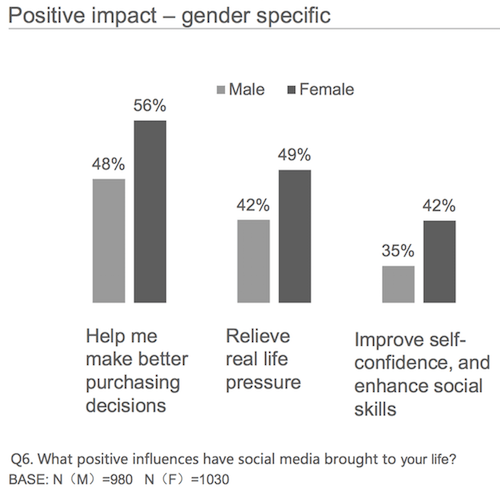
Younger generations see social media as an important way of relieving stress. Older generations use it for effectively communicating with friends and family members.
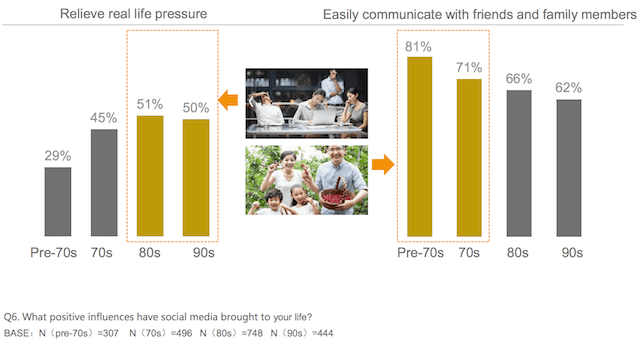
Social media also creates negative impacts in China:
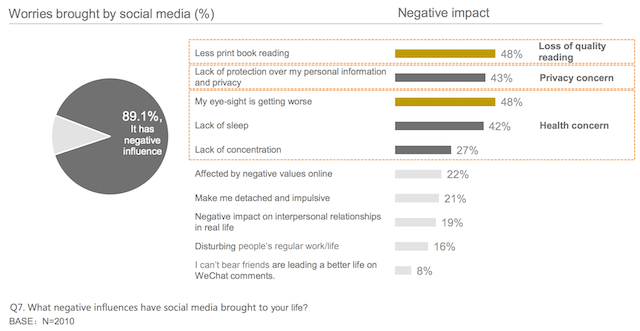
Younger social media users in China are more aware of negative impact brought by social media who are more cautious against impulsiveness, loss of concentration, negative values online, and etc. 90% have taken actions to control the damage, and self-discipline was the most chosen path.
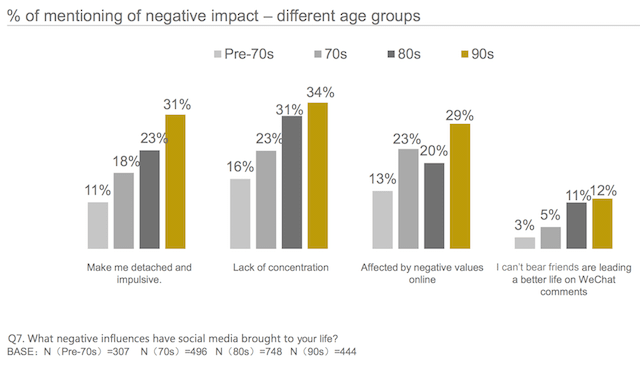
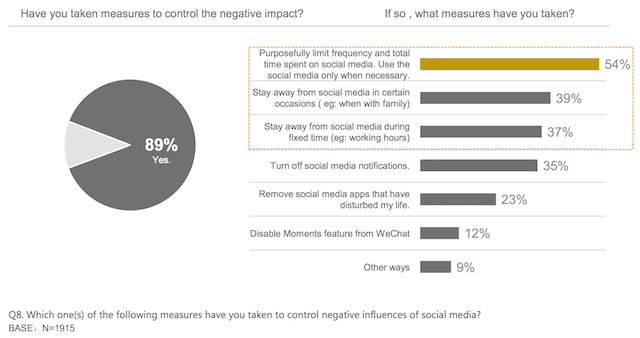
Around 40% of the 90s respondents said they turned off social media app notification.
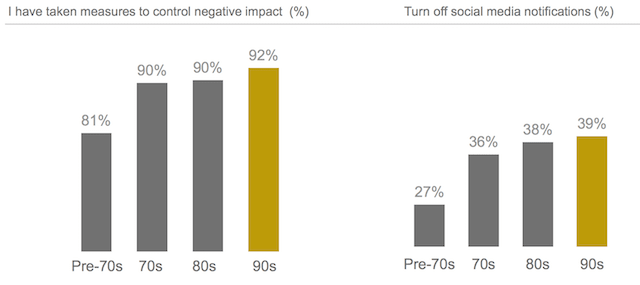
More than 95% users admit they pay attention to the level of personal information they share on social media according to the survey by Kantar.
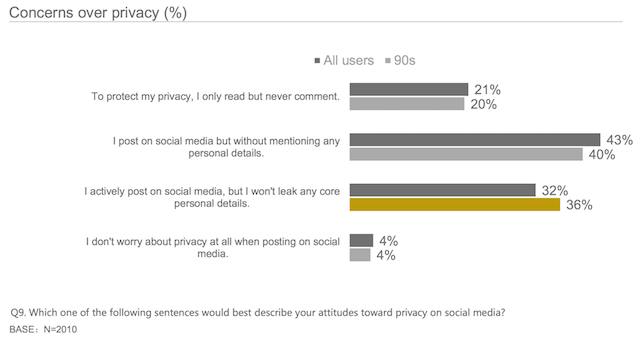
Most social media users selectively pay attention to social ads, dominated by Tencent and Weibo. The most important factor is whether it is “humorous and interesting”. The second most important factor is the ads’ relevance with the audience.
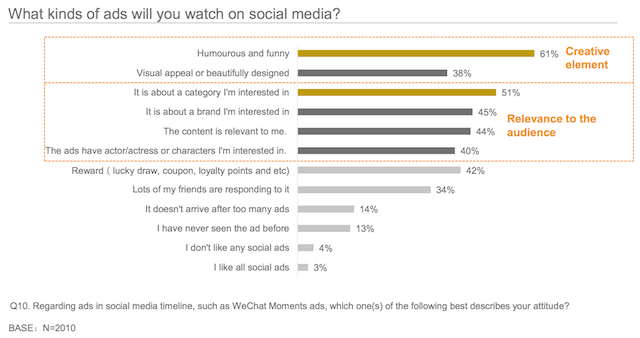
Chinese consumers want ad (in all formats) with humor, music and interesting stories.
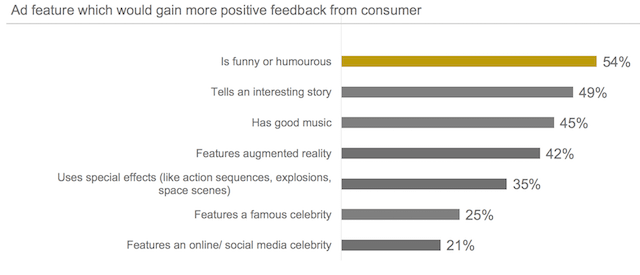
Most users feel social ads are quite relevant to them.
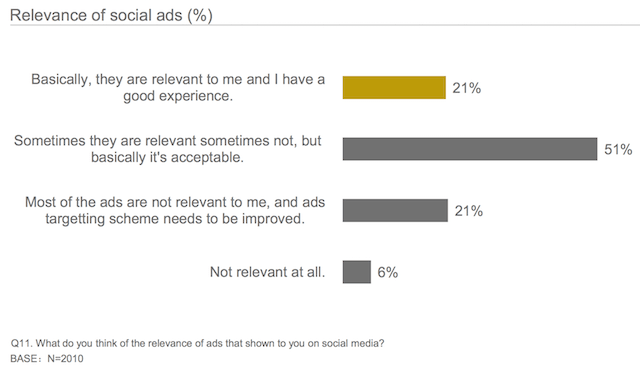
WeChat is the most satisfying app. Life service reviewing apps/sites, such as Dianping and Ctrip, ranked second at 81.7, followed by social functions on e-commerce platforms (81.2).
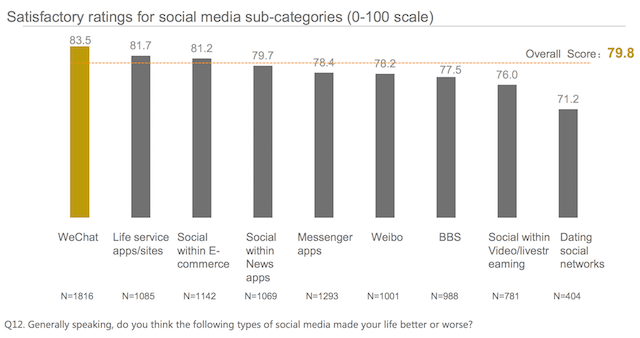
WeChat stands out in both usage rate and user ratings; and, dating social networks haven’t made an impact in China yet.
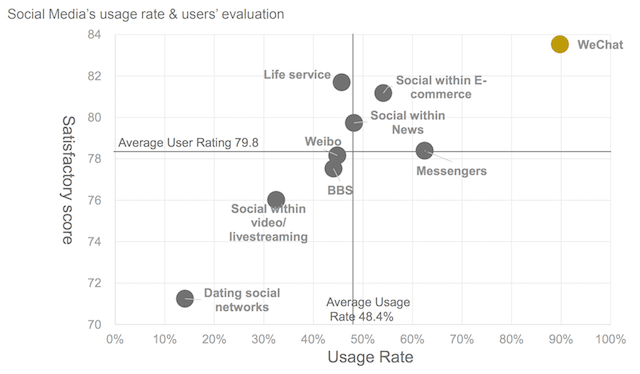
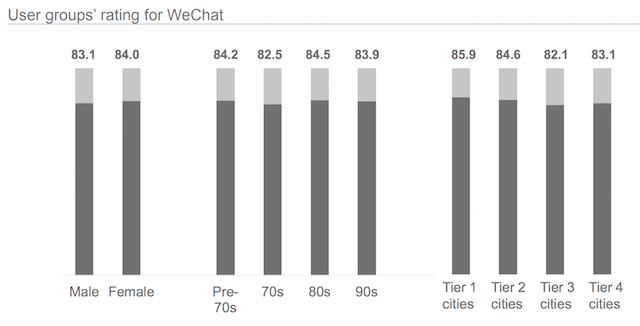
Weibo received particularly positive scores by younger generations: the younger the users are, the higher score they’d give Weibo. The post-90s gave it 79.3 score. Weibo’s monthly penetration rate grew by 3.7 percentage points in April from a year ago to 35.7%. While the penetration rate among the 18-25 age group jumped 13.7 percentage points to 45.9%.
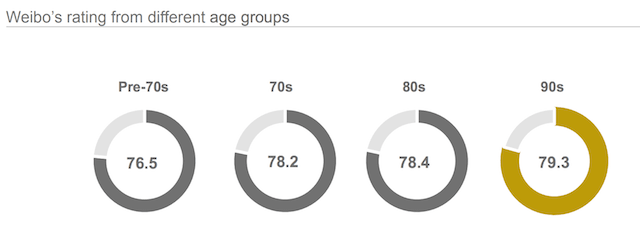
Post-80s users give the highest rating for dating social networks, probably because it is most in demand among them due to their life stage (generally, marriage is a pressing and sometimes depressing issue in China when one reaches a certain age).
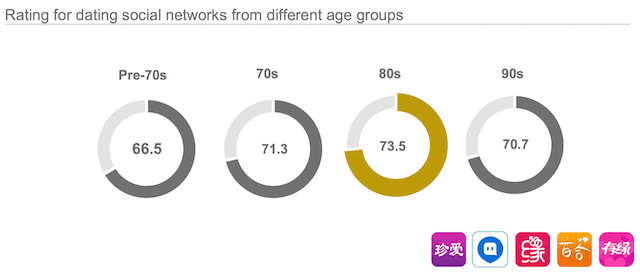
Social function within video/live streaming platform is popular among post-80s and post-90s.
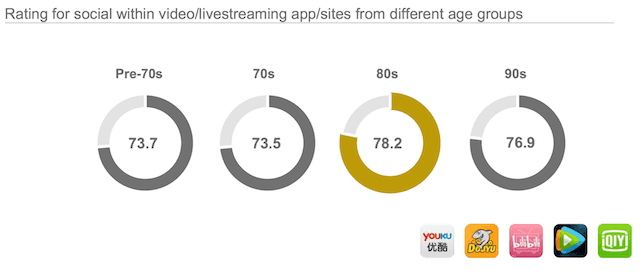
Social function within news apps gets a score of 79.7, and are preferred by users in tier-1 cities in China.
